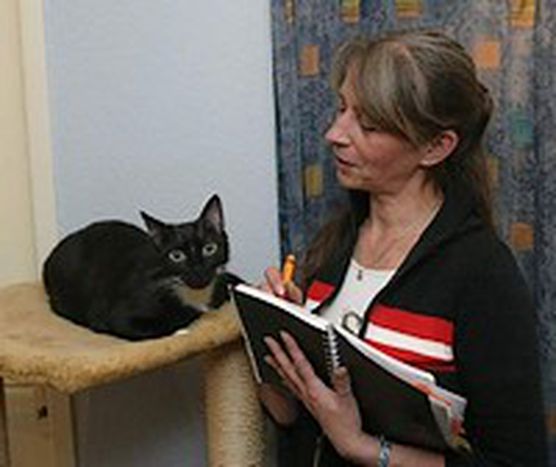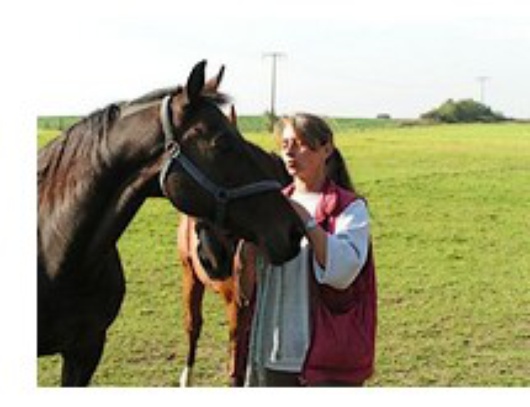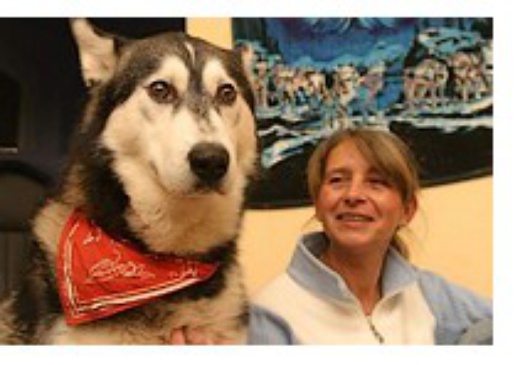
Animal psychology, on and off the couch
Published on
Translation by:
 Sophie Paterson
Sophie Paterson
If your cat has gone off its food, your dog is chasing its tail and your horse is scared of umbrellas, it’s time for a home visit to an animal therapist
Anton isn’t making good use of his litter tray. For some time now, his owner has had to go crawling behind the sofa and mop up after him. Not nice, but pretty normal. Indeed, his cat lav has a prettily decorated roof, because his owner liked it. For Anton, however, it’s wholly unsuitable - and frankly he’d rather go behind the sofa.
‘In nature, cats would never go into a hole to do their business. They need a view, in case of approaching enemies,’ explains pet therapist Gabriele Zuske. Being a great animal-lover was how all the animal madness began . A dog-, cat- and horse owner herself, Zuske amassed experience in bringing up animals for years. Finally the business employee founded 'Ich-AG', set up a website and opened her mobile psychotherapy practice. Her mission: help for cats and co.
. A dog-, cat- and horse owner herself, Zuske amassed experience in bringing up animals for years. Finally the business employee founded 'Ich-AG', set up a website and opened her mobile psychotherapy practice. Her mission: help for cats and co.
Who’s the master?
The most common problems are aggression, phobias, uncleanliness or so-called ‘over-grooming’, or the constant licking of body parts. ‘The owners mostly have no idea that their pet is suffering from a behavioural disorder. It’s only after a few years that it occurs to them to request professional help for their pets’ strange behaviour,’ reports Zuske. Her treatment primarily involves behavioural therapy, and an intensive discussion with the owner during which she is able to get to heart of the problem.
Most pet owners require their little darlings to adapt to their own lives and customs. A dog as a fashion accessory with a leash embroidered with gold, a cat that must cuddle on command. But at last, when the last pair of shoes has been shredded, the ears are laid back and the tail is wagging furiously - then it’s time for the couch.
The therapist does not actually talk to the animal, but rather to the owner. Master and Mistress have to learn to behave differently before they can change the behaviour of Muschi, Bello or Anton. ‘That’s actually the hardest part of my job, since most people don’t want to accept that they’re doing something wrong,’ according to Zuske.
Dog homeopathy, cat communication
If the animal mummies and daddies are insightful enough, one session is usually enough. But this still has its price: one consultation costs about 100 euros. ‘But in most cases the client only comes along that one time,’ she says, not without pride. That is, unless he/she decides on a long-term treatment plan with 'Bach Flower Remedies', homeopathy, massage or colour therapy. Gabriele also offers animal communication. Here, direct communication with the animal is in fact in demand. ‘Animals communicate via pictures, so I also have to talk to them in the same way.’
However, diagnosis comes before the therapy: not always so easy. Through some thorough detective work Zuske found out, for example, the cause of the quirk of a cat, who always took a pew on the neighbour’s roof. The reason? The animal was looking for eye-contact with his mistress, when he wanted to be left in the house. Sometimes, however, help comes too late. So it was with one family whose four cats had always been kept in different rooms. Locked in together, all hell broke loose, since therapy alone couldn’t change anything. Phobias are not uncommon amongst animals. Like humans, our four-legged friends also develop fears of closed rooms or particular objects: rustling bags, umbrellas or cars. In these cases only confrontation therapy can help, requiring time and patience.
A distinct trend is developing for the animal couch. Increasingly, more owners are choosing  to send their peculiarly-behaving, four-legged companions to therapy. Often it is not the animals themselves, but their owners who are neurotic. If a relationship isn’t working, work is too stressful or friends no longer call, it is the pet that has to adjust. In particular, city singletons find kitties trendy, without suspecting that taking responsibility for a pet is really not that romantic. ‘Like father, like pet’: whether overweight, pathologically nervous or plain irascible – a pet is often only as ‘psycho’ as its owner.
to send their peculiarly-behaving, four-legged companions to therapy. Often it is not the animals themselves, but their owners who are neurotic. If a relationship isn’t working, work is too stressful or friends no longer call, it is the pet that has to adjust. In particular, city singletons find kitties trendy, without suspecting that taking responsibility for a pet is really not that romantic. ‘Like father, like pet’: whether overweight, pathologically nervous or plain irascible – a pet is often only as ‘psycho’ as its owner.
And while Zuske takes the quirks of her small patients seriously, a smile may well escape her lips about her clients. At any rate, a visit to the pet therapist helps not only the animal, but also their master or mistress. In Anton’s case the therapy was doubly worthwhile and if everything is going well, then everything also goes swimmingly with the cat litter.
Translated from Tierpsychologie: Ab auf die Couch!


